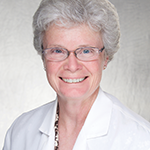
Gustavo Frazao/shutterstock.com
Physicians are no more likely than other people to want to think about what happens next. The question of who takes over for a doctor due to death, disability or retirement has legal, medical and personal implications and requires planning to ensure the succession goes smoothly.
“Succession planning is like an advance directive for the practice,” says Andrew Swanson, MGMA vice president of Business Development and Consulting in Englewood, Colo. “We have a hard time convincing patients that they need these in place, and it is equally hard to get doctors to face these decisions as it applies to their practice and professional life.”
In addition, doctors can be very busy and don’t feel they have the time. Legal, financial, insurance and other issues are often easier to avoid than work on.
Attorney/Accountant Important Advisors

Mr. Swanson
“No matter the size of your practice, the most important advisors in succession planning are your accountant and your attorney,” says Chris Mann, a partner at the law firm of Dawda, Mann, Mulcahy & Sadler PLC, Bloomfield Hills, Mich. “They do this all the time. The physician, on the other hand, will most likely be facing these questions only once in a lifetime.”
There are some similarities in the issues being faced if the business is operated by a solo practitioner, is a small group (three to six partners) or a larger group. There are also concerns that are size specific.

Mr. Mann
“It really doesn’t matter if you are a single practitioner or a very large group, advance planning and an orderly transition are important to the continuing operation or disposition of the practice,” says Rai McElroy, CPA, chief financial officer for Arthritis and Rheumatism Associates in the metropolitan D.C. area. “You need a strategic plan to keep the practice viable while decisions are made and implemented in the event of death, disability or retirement. This strategic plan should be designed to maximize the value of the practice by preventing the need for an immediate sale at bargain basement prices.”
2 Main Parts

Mr. McElroy
Planning should focus on two main parts. One is an unexpected transition related to the death or disability of a doctor. The other is the—hopefully—more controlled transfer of the practice because of retirement.
Having a succession plan is important irrespective of the structure of your practice. However, there is much less room for error when a sole practitioner or two- or three-person practice is involved.



